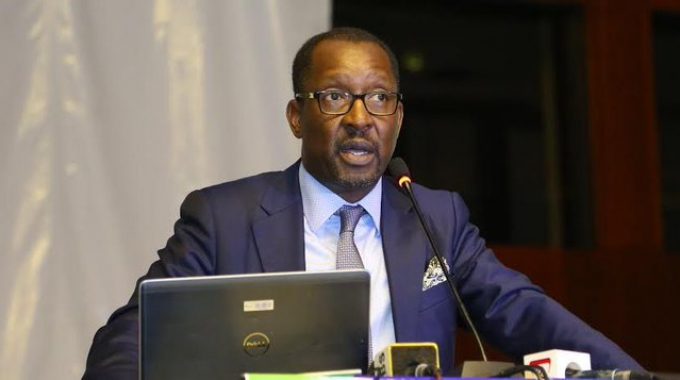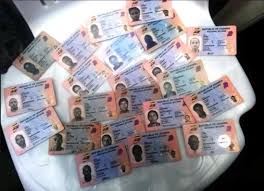National Social Security Fund NSSF has been awash on social media and the news media since the emergence of Covid-19.
Several members of the population and politicians have taken to social media and the wider media to demand NSSF pays 20% to its members to help them during the Covid-19 period.
Muhammad Nsereko, Kampala MP tabled a motion in Parliament last week to compel the fund pay its members. Dr. Kizza Besigye, opposition leader and Robert Kabushenge, CEO New Vision Group were some of the notable figures who took to social media to add their voices to the members’ call.
The speaker Rebecca Kadaga, then took to social media to call for an expeditious process to the bill and have the mid term access approved.
Kadaga then posted on her Twitter account: “With regard to the NSSF Bill, last week I instructed the joint committees of Finance and Gender to work expeditiously and complete the Bill. The Chair committee of Gender will present the report to the House bse the Bill was sponsored by the Minister for Gender.”
She had earlier been pressured to initiate: “On amending the NSSF law because of Covid-19. There’s the argument that people should access their savings before 50 years. What’s the point of me saving money and I die; and other people use it. I’m hungry now. This is something we need to discuss as Parliament.”
Before, the motion was full bill brought to the floor of Parliament by Finance and Labour and Gender Committees, Finance and Economic Planning minister Matia Kasaija had requested the Managing Director NSSF Richard Byarugaba to assess the impact of the 20% pay out to members. Byarugaba responded as Kasaija requested by penning his expert opinion on the pay out. The NSSF chief’s document to the minister some how found its way into the public and it became a subject of contentious debate. With many members viewing it as a move to block their case.
Byarugaba in response to the members’ outrage took time out of his busy schedule to appear on the national broadcaster Uganda Broadcasting Corporation UBC to digest the subject matter, mainly on the impact the pay out of 20% would have on the economy. However, largely maintaining the fund has its members at heart and that if legislators approved the pay out, he would have it effected. Below, we reproduce the MD’s technical and detailed break down of the fund and the role it plays to its dear members.
Allegations of attempt to block 20% pay out
I am not standing in anybody’s way. One of the things I believe is our customer. That is the reason we exist our customer is a member of the fund. I am just a trustee. And I have rules to follow.
I run the fund based on the rules. There is no rule that accepts our members to access mid term access.
I know the period is tragic, traumatic. We need to find ways to make sure our customers have a better life. We do empathize with our members. We know it is a difficult period.
We are looking at numbers, we know many have even lost their jobs. Schemes and funds are run by the rules. There is nothing that allows us to make mid term payments to our members.
Minister’s intervention
There is a clause in relation to benefits as prescribed. There are five options in the clause. If you are 50 and out of job for a year, you can get your money.
If you are 55 whether you are working or not you can get the money. Then there is situation of a driver, you get an arm fracture or break and you can get your money.
Then it is also extended to those with serious illnesses. Then there is the powers of the ministers who. When you pass on the money is passed on to your family. Minister has powers.
He can issue an instrument to vary your payment. Suppose you are 55, and you wanted your money in deferred payments, he issues you an instrument and we pay out.
Why NSSF invests in long term assets
The true is the money is in long term assets. Most of our members are 30 and will require their money in 25 years.
What 20% pay out means to economy
Back ground
The minister actually asked for the letter. He was going to appear on the floor of Parliament to discuss that motion that had been tabled by one of the MPs and needed some background information to be able to utilize.
The first thing we set out to do if somebody were to come out to ask us to pay the 20%. How much would that be worth? We looked to look at our total, balance held. That is 13trillion.
We then looked at how much is 20% of that? and then the payment we usually make to the people who qualify.
We looked at the amount we usually pay to that group and it is 800 Billion Shillings. If you are looking at 800 Billion Shillings and 2.6 Trillion Shillings, that comes to 3.2 Trillion shillings.
That if you discount for things that don’t happen immediately, we said we needed 3 Trillion Shillings, the least.
Where NSSF invests monies
We then looked at we is happening in the rest of the market. We have got three sets of assets; one of the assets is to recall the treasury bills, that is paper we buy from government.
The other thing is investment in equities. These are shares of companies that trade in the stock exchange. Then the third category is the real estate. The real estate unfortunately holds money longest. However, it is the smallest percentage of assets.
Impact on economy
This is not an easy area to look at for quick money. The opportunity for us lies in the money from our treasury bonds. We then looked at how many treasury bills government of Uganda issues out in a year. It is about 3 Trillion Shillings.
That is the amount of money government raises from the market in a year. But now we have to put that money at a ago into the market. in other words discount our treasury bonds to raise that cash to pay off our members. we then said, what is the impact of that?
You have to be honest and say this is the worst case scenario. You are under distress to sell treasury bonds. you will suffer the consequences. Government will buy but at a discount. Even members of the public will buy but a discount. If you were to sell to members of the public that would obviously be the banks because they have the liquidity.
That would mean banks would have to make a decision, to either sell to government or members of the public. Do I lend to the members of the public or government?
Of course if I were a bank manager I would lend to government because the risk is less than lending to members of the public. The money that banks were lend to the public are diverted to buy treasury bills to pay our members. guess what companies then fail to get credit. so that is the first big problem.
There would less credit for companies. as prices of bonds go down, they have an inverse relations with interest rates. interest rates go up. you can say we sell them abroad. the people abroad will want a big discount. Since they are bringing in a lot of dollars, it will weaken the shillings. guess who suffers? It is the exporters who come down.
The other one is a run on the fund, how does that come about? If I was an honest saver and the rules keep changing every after two years, why would I trust you to keep my money? Because I know somebody tomorrow will come and change the rules.
So what if two years there is a huge flood and it affects. People will trust you less. We have almost a trillion of shillings of people who are retired but have chosen to leave their money with the fund, what will you tell them? Because they see the fund would give them a good return. This is what we were honestly telling the minister about the impact of a pay out to the leaders who are responsible for making policies.
Interest, benefits explained
Lets look at the purpose of NSSF. it is a provident fund. It is a fund where people put their money. 5% from employee and 10% from employers. It is then put into your account.
The money is invested and every year the profits are shared among members on an equal basing on how much one has put into the fund. At the end that money is then handed back to the individual with the interest.
And it is paid as a lumpsum. Although the name is social security, it does not serve the other benefits under social security are not covered. What the future holds. We did recognize our members wanted social security benefits.
Together with the unions, workers federation, government ministry of gender and ministry of finance, we then sat with all the other stakeholders and pension providers.
This was sent to cabinet and passed. It is now seated with Parliament committee for Gender and Social Services and committee of Finance.
As you heard last week, speaker asked the committees to bring the matter to the floor of parliament so that members of NSSF can get enhanced benefits. Things like mid term access.
Why MD can not intervene
I am limited. that is something that has been realized in the law. Amendments to the law can help us do a lot. If anybody is concerned why don’t they talk to their members of Parliament on what they can do to help.
Response to former deputy MD Geraldine
Everybody is entitled to an opinion. Geraldine has her opinion. I have not said NSSF is not in position. NSSF is not a liquidity fund to make this payment. Our liquidity amount per month is 250Bn Shillings. The other way is to stagger the payment by paying every month. It would not affect its profitability if it were to make this payment at once. It would have to dispense treasury bills to make this payment. Then it would affect the fund.

Award winning journalist and writer who has worked as a stringer for a couple of acclaimed South Africa based German journalists, covered 3 Ugandan elections, 2008 Kenya election crisis, with interests in business and sports reporting.















